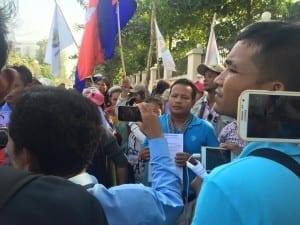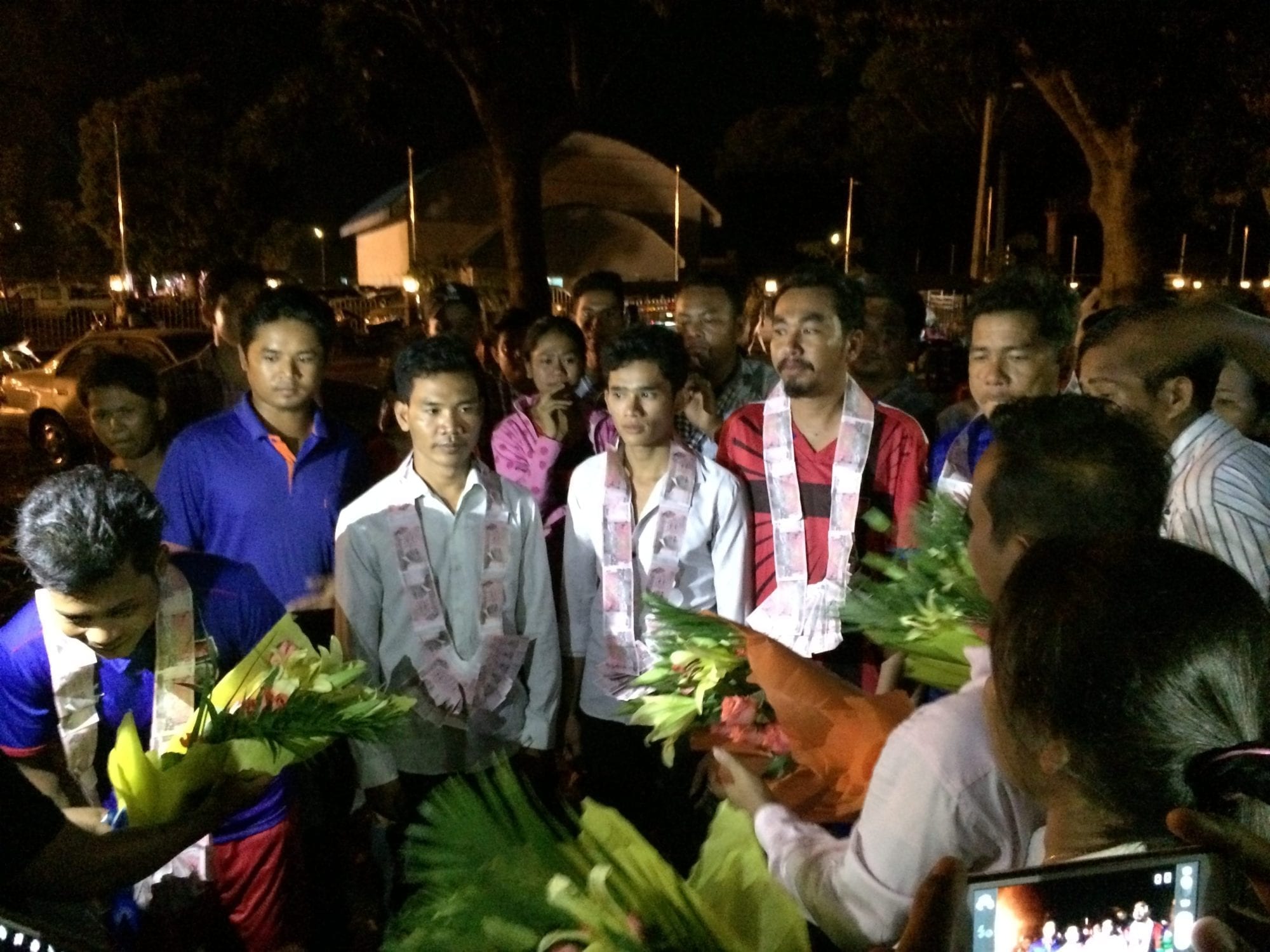Five leaders of the Collective Union of Movement of Workers (CUMW) in Cambodia were released from detention today after spending nearly a week in prison for seeking to assist striking garment factory workers who sought their support. The Solidarity Center legal team in Phnom Penh was instrumental in securing the five men’s freedom.

CUMW President Pav Sina said without support from the Solidarity Center, the union would have been unable to secure justice for the five organizers. Credit: Solidarity Center
Speaking at a gathering this evening to mark the release of the five union leaders, CUMW President Pav Sina said without support from the Solidarity Center, the union would have been unable to secure justice for the five organizers.
The organizers say they were beaten and arrested on January 12 when they sought to meet with the workers at the factory. Five other workers were beaten, with four suffering serious injuries to their eyes, heads and hands. The workers, who make sweaters, had sought the union’s assistance in helping them achieve workplace improvements that include lengthening work contracts from three months to a year; doubling daily pay for holiday work; and providing additional piece work pay.
At a rally in early January, the five CUMW leaders joined workers outside the factory in a solidarity rally which was disrupted when the president of the employer-controlled union ordered his group of workers to destroy CUMW materials and loud speakers. Several days later, more than 400 workers protested outside buildings housing the Prime Minister and National Assembly to further press for their rights at work and the next day, more than 500 workers gathered at the factory and at the court to demand release of the union organizers.
Short-term Contracts Make It Hard for Workers to Win Better Wages
Cambodia’s garment workers “often experience discriminatory and exploitative labor conditions” according to a Human Rights Watch report last year, which cited short-term contracts as contributing to the often abusive conditions.
“The combination of short-term contracts that make it easier to fire and control workers, poor government labor inspection and enforcement, and aggressive tactics against independent unions make it difficult for workers, the vast majority of whom are young women, to assert their rights,” the report stated.
An estimated 700,000 workers in Cambodia sew and package more than $5 billion worth of clothing, textiles and shoes every year, making up at least one-third of the country’s gross domestic product. Yet workers currently earn far less than they need to cover expenses, according to a study of garment workers and their expenditures, conducted by labor rights groups, including the Solidarity Center.
Garment workers across Cambodia have waged a series of rallies and strikes to protest low wages, most recently in October, when some 21,000 garment workers from six unions at more than 60 factories rallied for a higher minimum wage. In 2014, tens of thousands of garment workers took part in a series of mass protests demanding a living wage. At one rally, Cambodian security forces killed five workers and injured more than 60 and resulting in the arrests and dismissals of dozens of workers and union leaders.

